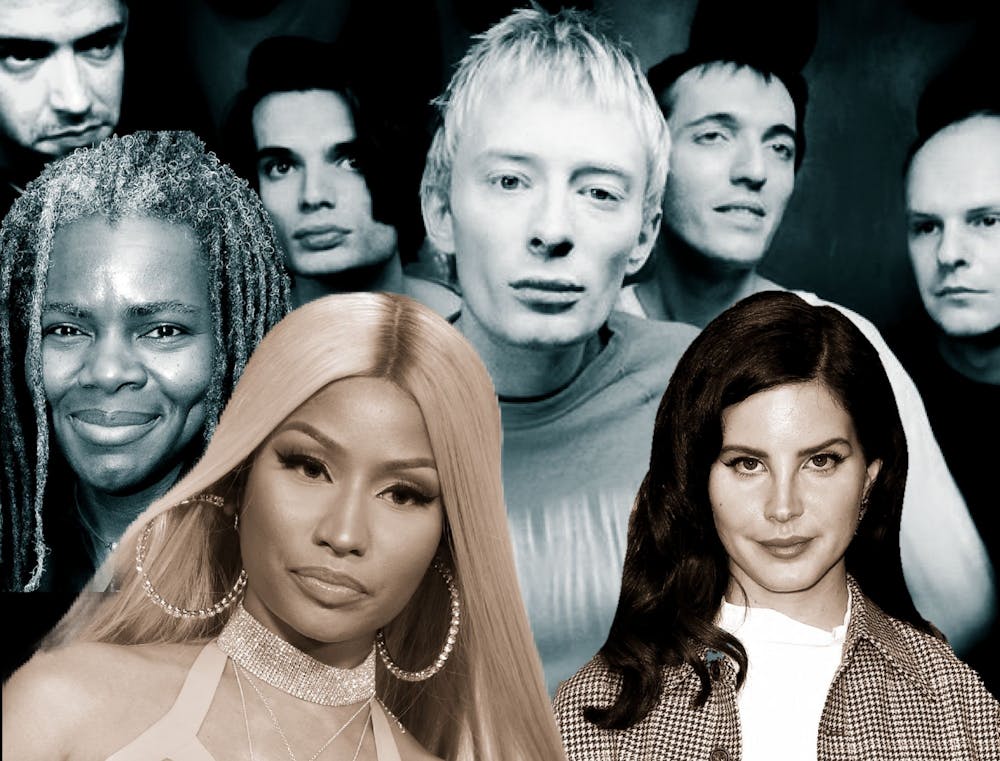After two years of legal battles, Nicki Minaj agreed to a $450,000 offer of judgment to Tracy Chapman for sampling her 1988 hit “Baby Can I Hold You" in Minaj's leaked song “Sorry.” Following their mutual agreement, Chapman released a statement explaining that “as a songwriter and an independent publisher, I have been known to be protective of my work. I have never authorized the use of my songs for samples or requested a sample.” Chapman’s suit against Minaj is hardly the first time two artists have sought legal action over copyright infringement or similarities in music, but the lawsuit over “Sorry” raised eyebrows for one reason: Minaj never officially included it on her album, Queen (2018). While Minaj didn't formally release the song, it leaked to a popular radio station DJ, Funkmaster Flex, who then played it on his station.
While Minaj and Chapman avoided a trial, the $450,000 settlement and the case itself serve as a pointed warning to all musicians. Minaj never officially released "Sorry" but still faced legal consequences following its leak to the public, which Judge Virginia A. Phillips, who presided over the issue of fair use, worried could serve as a deterrent for artists to experiment in the studio. Beyond experimentation, coincidence and the sheer volume of different artists creating music could explain similarities between certain songs, making it extremely difficult to resolve legal disputes if the likeness isn’t as simple as the inclusion of a sample.
In 2018, the internet dubbed Lana Del Ray “Lana Del Radiohead” when Radiohead fans noticed how much her song “Get Free” sounded like the band’s enduring hit “Creep.” Del Ray confirmed rumors of a potential lawsuit in a tweet, explaining that Radiohead turned down an offer of 40% of royalties from "Get Free," and instead demanded all of the money generated from her track. However, Radiohead's music publisher then retorted with a statement claiming "no lawsuit has been issued" and Del Ray told fans she might remove the song from "future physical releases" of her album Lust for Life. Later that year, Del Ray confirmed the end of the copyright infringement accusations at her Lollapalooza set, performing "Get Free" and asking fans, "Now that my lawsuit's over, I guess I can sing that song any time I want, right?" Radiohead reportedly asked for songwriting credit, but "Get Free" still only lists the original three writers.
Del Ray and Radiohead's contention further reflects the complex nature of copyright infringement cases in music, especially considering that "Creep" itself faced a successful legal suit from The Hollies for similarities to their 1974 song "The Air That I Breathe." With a slew of other high–profile disputes involving popular songs like "Blurred Lines" and "Shape of You," it's clear that the boundaries of borrowing in music are shaky at best. Using only a finite number of chords, overlap is bound to happen—especially in pop music.
Even with thousands of comparable songs and potentially repetitive chord progressions, some artists are inadvertently avoiding copyright infringement suits through their creative use of original samples. Maggie Rogers made waves in 2016 with her unique electronic–folk track "Alaska," which garnered praise from Pharrell Williams during his appearance in an NYU Tisch School of the Arts masterclass. "Alaska" plays like a breath of fresh air, taking sounds from nature and perfectly encapsulating it at the same time. With samples from her travels and hikes in Alaska during a music hiatus, her breakout hit features samples from chirping birds, a chattering Moroccan marketplace, and the pattering of fingers on jeans.
Rogers details her inspiration from dance music, naturalizing the synthetic with samples unique to her personal journey. Like other electronic artists employing found sound into their music, Rogers' samples in "Alaska" and later tracks like "Dog Years" steep her music in authenticity and originality. With similar artists relying on unique, personal sources for samples and inspiration, concerns of excessive "borrowing" take a back seat to creation. Pharrell Williams' comments on "Alaska" emphasize the value of Rogers' work, calling it singular: "It's like when the Wu–Tang Clan came out ... you either liked it or you didn't. But you couldn't compare it to anything else."
In December of 2020, Rogers released 16 tracks from her musical career prior to the viral success of "Alaska" in Notes from The Archive 2011-2016. The tracks range from soft indie rock in "Celadon & Gold" to declarative acoustic in "Blood Ballet" and contrast the potently whimsical tone of her more recent work like "Love You For A Long Time" (2019). Still, her characteristic folk–pop fusion finds places to shine, with "Resonant Body" and its instrumental nods to her roots. Rogers' growth into a sound of singularity is undoubtedly influenced by her use of natural samples and return to the most authentic source of music.
As musicians continue to create, the landscape of copyright infringement will likely become more convoluted in the future. Still, artists and technology aren't finished growing and certainly aren't confined in creative potential: Unique sample–use could be a good place to start.







